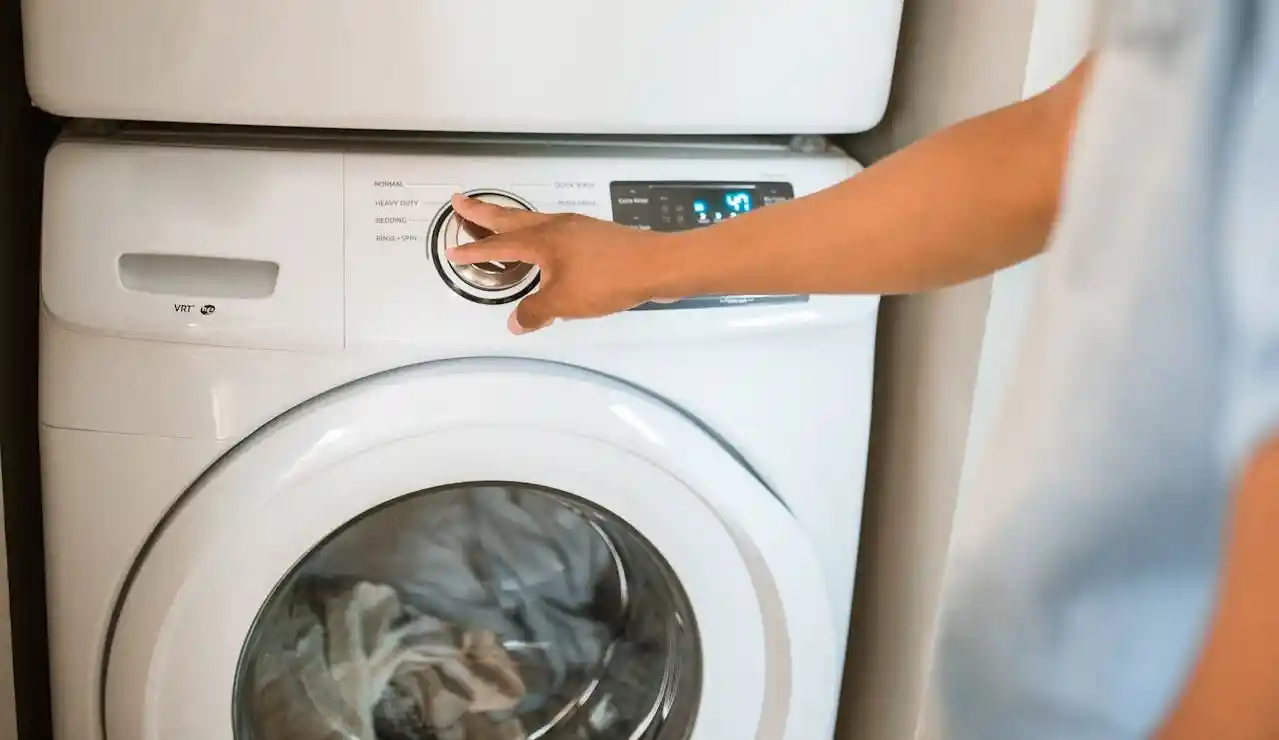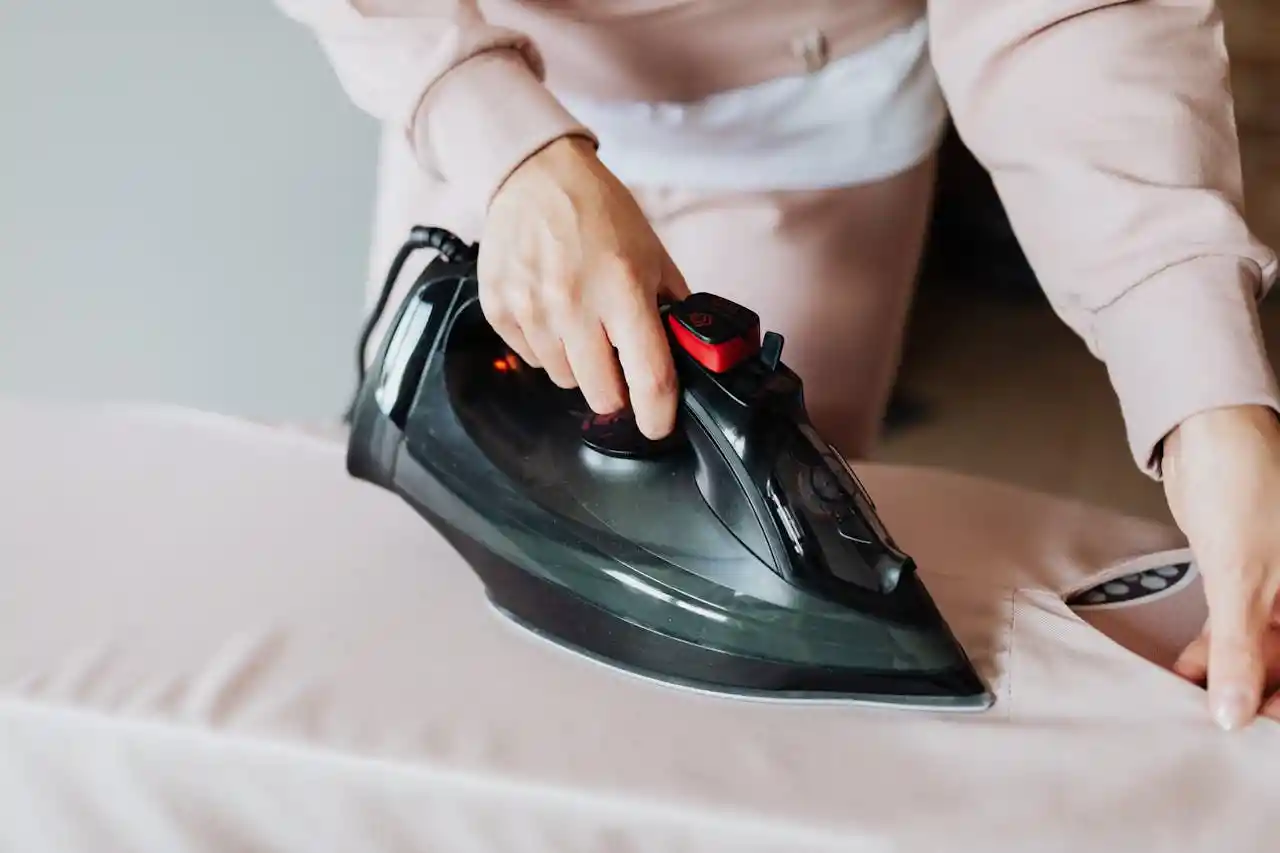
Polyester is one of the most popular synthetic fabrics used in clothing and textiles today. However, questions often arise about how polyester behaves during washing and drying—especially when it comes to shrinking.
This guide will explore whether polyester shrinks, what factors affect its size changes, and offer practical tips for proper fabric care.
Whether you're a designer, small business owner, or simply someone looking to keep your polyester garments in great shape, this article has you covered.
Understanding Polyester
You likely own something made of polyester without realizing it. This synthetic fabric comes from chemicals, not plants or animals.
It's tough, resists fading, and stays smooth after washing. Polyester barely shrinks, so your favorite shirt keeps its shape. It's easy to care for too.
Common Uses of Polyester
- Apparel: Perfect for exercise tops and camping shirts that offer stretch and moisture-wicking properties, ensuring comfort and ease of movement.
- Bed Products: Commonly used for sheets and pillowcases, providing a soft touch and making cleaning quick and easy.
- Furniture: Sofas, armchairs, or ottomans, since it's durable and resists spills or stains well.
- Bags & accessories: Suitable for backpacks, laptop bags, handbags, cooler bags, and sports bags—built tough to withstand heavy use.
- Decor: Curtains, tablecloths, or rugs, adding vibrant colors and lasting strength to your home.
- Outerwear: Raincoats or windbreakers, keeping you dry with water-resistant properties.

Custom Women's Short Sleeve Cape - Print on Demand Fulfillment - PrintKK
Does Polyester Shrink?
The short answer is: usually no. Polyester is a synthetic fabric, which means it's made from plastic fibers. These fibers are designed to hold their shape and size well, even after washing and drying.
You might notice some slight changes if you wash polyester in very hot water or dry it on high heat. But these changes are often minimal and won't make your clothes dramatically smaller.
Keep in mind, polyester blended with other fabrics, like cotton, might shrink a bit more because natural fibers react differently to heat and water.
If you want to shrink polyester intentionally, it's tricky. The fabric doesn't respond like cotton does. You could risk damaging your clothes by using extreme heat.
So, when you care for polyester, it's best to wash it in cool or warm water and use low heat for drying. This way, your clothes stay close to their original size and last longer.
Read More:

Cotton-Polyester Blend: How Much Can They Really Shrink?
When it comes to cotton-polyester blends, shrinking can be a bit tricky. You might expect the cotton part to shrink, but polyester behaves differently.
How Cotton Percentage Affects Shrinkage
If your fabric has a low cotton percentage—say around 20%—you won't see much shrinkage at all.
The cotton may try to shrink a little, but the polyester will hold things in place.
That means your garment might get a bit shorter or change shape slightly, but it probably won't get much smaller overall.
Uneven Shrinkage and Shape Changes
Shrinkage in blends is often uneven. The fabric might shrink more in length than in width, or vice versa.
Also, the seams and threads usually won't shrink with the fabric, which can cause the garment to lose its original shape.
Pre-shrunk Fabrics and Final Tips
Keep in mind, some clothes are already pre-shrunk during manufacturing. That makes shrinking even less likely.
If you really want to shrink a cotton-polyester piece, washing it in hot water and drying on high heat is the usual advice. But be prepared for only minimal changes.

Tips For Washing And Drying Polyester
Washing
Always check the care label first. Most polyester clothes can go in the washing machine. Use cold or warm water—never hot—to avoid damage. Hot water weakens fibers and increases shrinking risks.
Pick a gentle detergent. Skip bleach or fabric softeners, which can break down polyester over time. For stains, pretreat with a mix of dish soap and water. Rub gently to avoid fraying.
Turn items inside out before washing. This protects colors and prints from fading. Zip zippers and fasten hooks to prevent snags.
Drying
Air-drying is safest. Lay polyester flat or hang it to keep its shape. If you use a dryer, choose low heat and remove items while slightly damp. High heat melts fibers or causes uneven shrinking.
Shake clothes before drying to reduce wrinkles. Avoid overloading the dryer—it traps moisture and extends drying time.
For stubborn wrinkles, use a steamer instead of an iron. If ironing is needed, set it to "synthetic" mode (low heat) and place a cloth between the iron and fabric.
Polyester dries fast, so check it often. Fold or hang items immediately to prevent creases.

How To Shrink Polyester Clothing
Heat Water
Start by washing your polyester clothing in hot water. Use the highest temperature allowed on the care label. Hot water helps loosen the fibers and begins the shrinking process.
Avoid overloading the washer. Give your clothes plenty of space to move. This lets the heat spread evenly.
Dryer
Next, place your clothes in the dryer. Use a high heat setting to promote shrinkage. Keep an eye on them to avoid overheating.
Remember, polyester may shrink unevenly. Length and width might change differently. Watch closely for any unexpected results.
Iron
For targeted shrinking, try using an iron. Set it to medium or high heat, but don't use steam. Press the iron gently on the fabric.
The heat tightens the fibers further, allowing you to shrink specific spots if needed.
Avoid Shrinking Clothes When Size Exchange Is Possible
You might think washing and drying can shrink that oversized shirt to fit perfectly. Think again. Shrinking is unpredictable. Your clothes might end up too short or tight in the wrong spots.
It's not like they'll magically become one size smaller. Fabrics like polyester blends can wrinkle, twist, or even get lumpy when you try to shrink them at home.
Size Exchange Is Smarter
If your jacket or skirt doesn't fit, return it. Most stores let you swap for a smaller size. It's simple and safe.
Exchanging ensures you get clothes that fit your body without risking damage. Shrinking might sound tempting, but it's a gamble that often fails.

Custom All Over Print on Demand Bodycon Dresses for Women - PrintKK
Alterations Are a Better Fix
Don't want to exchange? Try tailoring instead. A dry cleaner or tailor can adjust your clothes to fit just right. They'll tell you the cost upfront.
This works better than hoping a hot wash will do the trick. Tailoring keeps your clothes looking neat and professional.
Risks of Shrinking at Home
Shrinking clothes can ruin them. Mixed fabrics, like polyester with viscose, might distort or lose their shape. You could end up with a shirt that's uneven or unwearable.
If you must try, use a hot wash and dryer, but only if you're okay with potential damage. Stick to exchanging or altering for better results.
Read More:
Expert Tips
Now that you've learned about polyester and its shrinkage, you know it doesn't shrink easily. If you want to try shrinking polyester, use heat carefully. Washing in hot water, drying on high heat, or ironing can help, but results may vary.
Remember, shrinking polyester isn't always predictable. Sometimes, altering clothes is a better option.
Take your time and handle polyester with care. It's all about finding what works best for you and your wardrobe.
FAQs
Does Polyester Shrink in the Wash?
Polyester resists shrinking in most washes. It's a sturdy synthetic fabric. Use cold or warm water to keep its shape. Hot water might cause slight shrinkage in blends.
Is It OK to Put Polyester in the Dryer?
Yes, polyester handles dryers well. Use a low or medium heat setting to avoid damage. Air drying works too, especially for delicate items or blends with other fabrics.
Should I Size Up in Polyester?
You usually don't need to size up. Polyester fits true to size and doesn't shrink much. Check the label for stretch or blends, which might affect fit slightly.
Is Polyester Wrinkle-Resistant?
Polyester is great at fighting wrinkles. It stays smooth after washing or wearing. For best results, fold or hang clothes right after drying to keep them looking crisp.
Can Polyester Be Ironed?
You can iron polyester, but use a low heat setting. A quick steam or press removes minor creases. Always check the care label to avoid scorching the fabric.










 Made in USA
Made in USA


 Global Shipping
Global Shipping



























